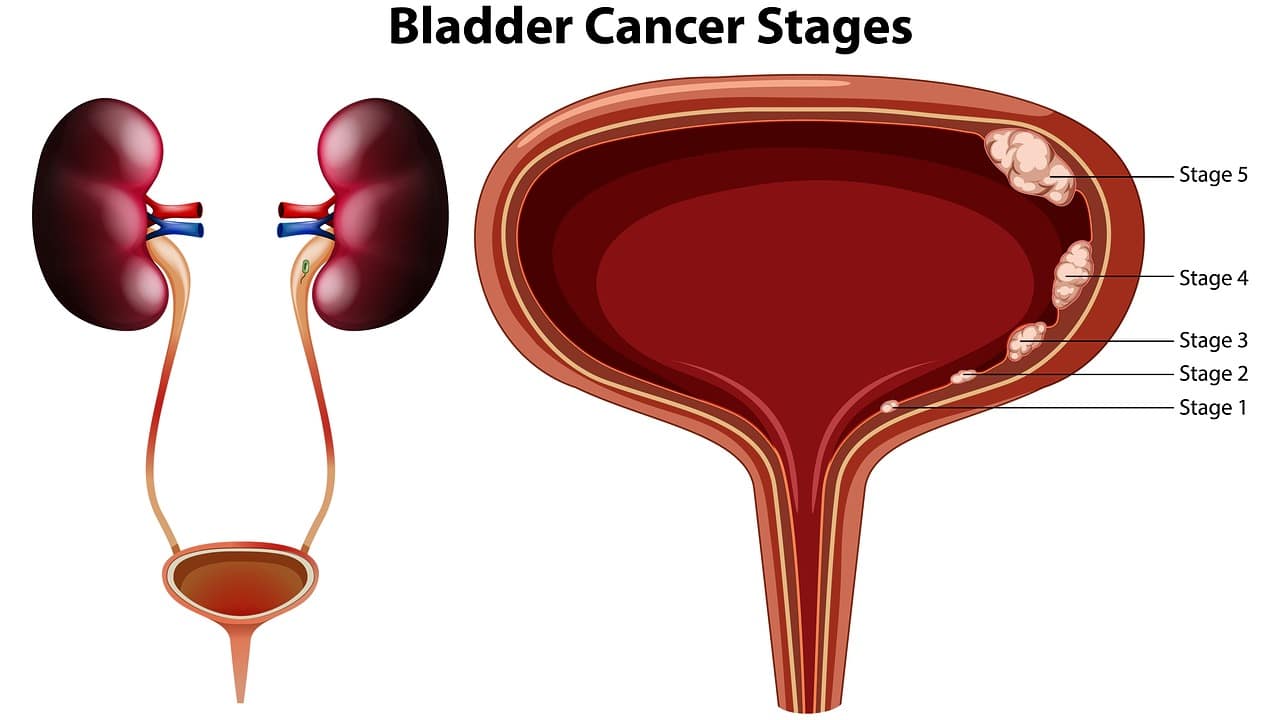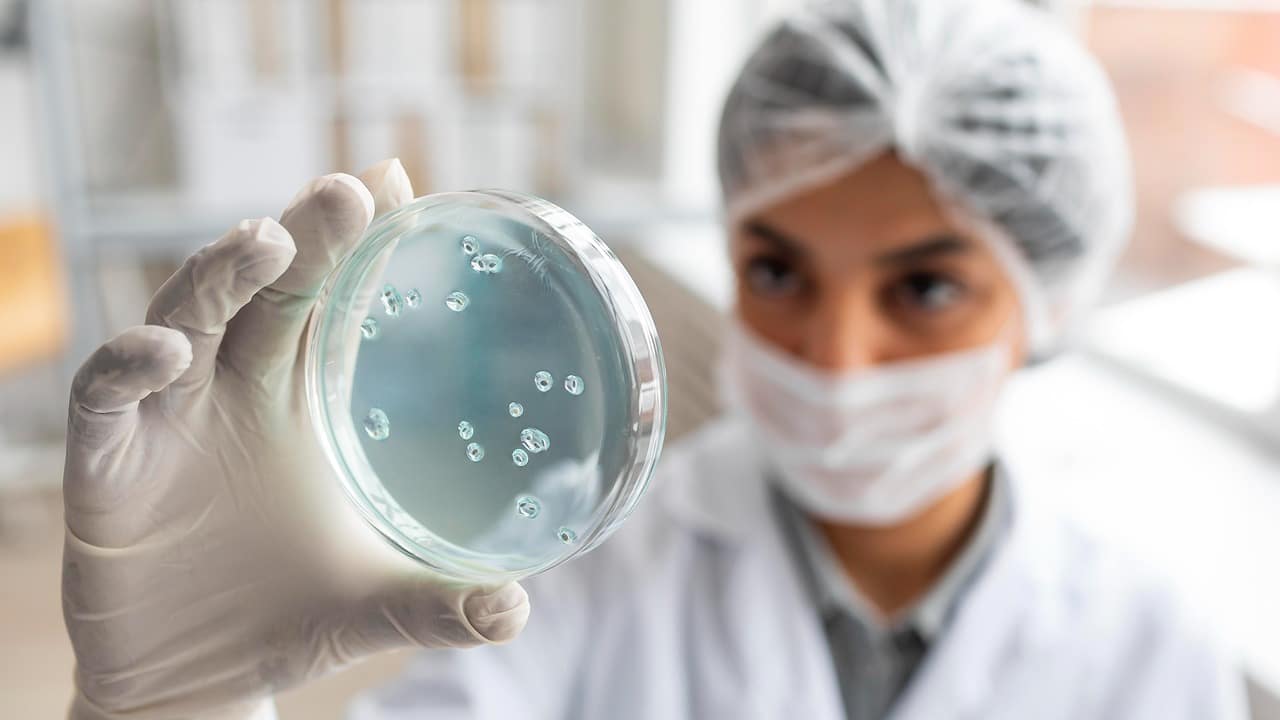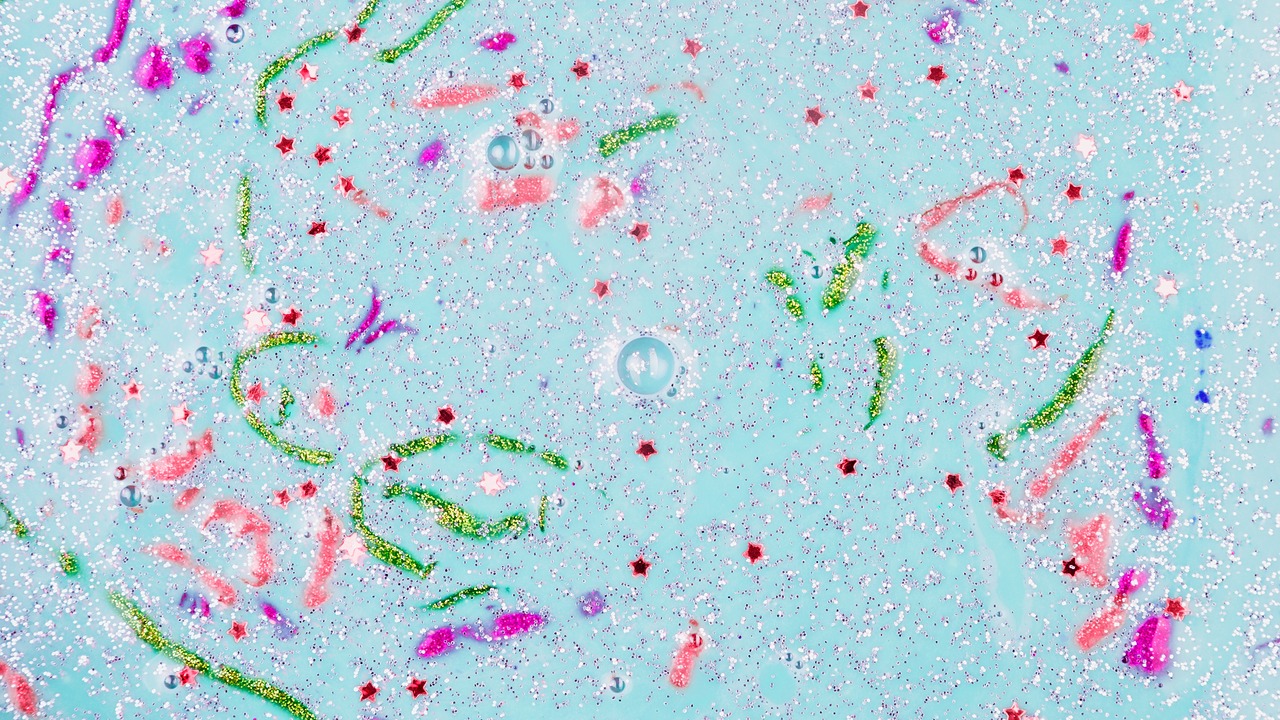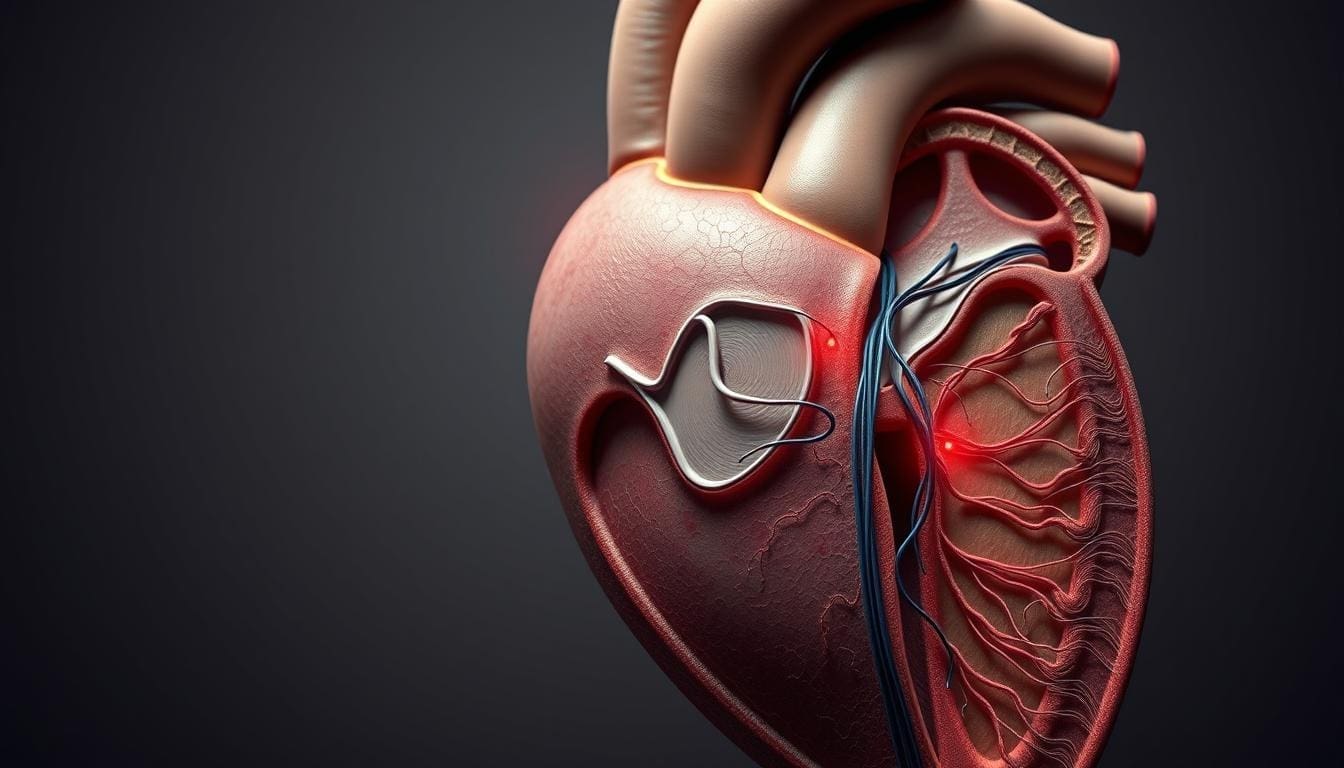Last Updated on November 26, 2025 by Bilal Hasdemir
BCG Therapy for Bladder Cancer Guide
BCG (Bacillus Calmette-Guérin) is a live vaccine against tuberculosis. It’s also key in BCG Therapy for Bladder Cancer. At Liv Hospital, we focus on both treatment success and patient comfort.
By putting the BCG vaccine in the bladder, we help the immune system fight cancer. This method has shown great promise. But, it’s important for patients to know about possible side effects of BCG Therapy for Bladder Cancer.
We’re a top healthcare provider, dedicated to patient care. We use new ways to improve treatment results. Our aim is to give world-class care and support to international patients.

Key Takeaways
- BCG Therapy for Bladder Cancer is a widely used immunotherapy for non-muscle invasive bladder cancer.
- The treatment involves introducing the BCG vaccine directly into the bladder.
- Patients should be aware of the possible side effects of BCG Therapy for Bladder Cancer.
- Liv Hospital puts patients first and uses new healthcare solutions.
- We aim to find the right balance between treatment success and patient comfort.
Understanding BCG Therapy for Bladder Cancer
BCG Therapy for Bladder Cancer is a key treatment option. It uses a tuberculosis vaccine to fight cancer cells. This method is a mainstay for non-muscle invasive bladder cancer.
What is BCG Therapy?
BCG, or Bacillus Calmette-Guérin, is a vaccine made from a germ related to tuberculosis. It’s put into the bladder to boost the immune system against bladder cancer cells. BCG Therapy for Bladder Cancer is not for treating tuberculosis but to fight cancer with the immune system.

Doctors say, “The BCG vaccine is used for its immunotherapeutic properties in treating bladder cancer.” This shows how versatile and promising BCG Therapy for Bladder Cancer is.
How BCG Works Against Bladder Cancer ?
BCG Therapy for Bladder Cancer induces a strong immune response against bladder cancer cells. When administered, it sparks an immune reaction that kills cancer cells. The process involves activating immune cells like macrophages and T-cells.
- Stimulates immune response
- Activates immune cells like macrophages and T-cells
- Helps in destroying bladder cancer cells
Understanding BCG Therapy for Bladder Cancer helps patients and doctors see the value of immunotherapy.
The Science Behind BCG Immunotherapy
BCG immunotherapy is a key treatment for bladder cancer. It uses a form of immunotherapy called BCG, or Bacillus Calmette-Guérin. This method is effective for treating non-muscle invasive bladder cancer (NMIBC).
Mechanism of Action
BCG immunotherapy works by boosting the body’s immune system to fight cancer cells. When BCG is put into the bladder, it causes a local infection. This infection triggers an immune response.
This response includes the activation of natural killer cells, macrophages, and T lymphocytes. These immune cells work together to destroy cancer cells.
The process starts with BCG sticking to the bladder wall. Then, immune cells take it in. This leads to the making of cytokines and chemokines. These molecules help coordinate the immune response.
The immune response from BCG therapy involves immune cells moving into the bladder wall. There, they target and kill cancer cells.
Immune System Response
The immune system’s response to BCG immunotherapy is complex. It involves many parts of the immune system. The therapy triggers a Th1-type immune response. This type of response is key for fighting tumors.
Research shows that BCG immunotherapy’s success depends on a strong immune response against the tumor. The presence of immune cells in the tumor microenvironment affects the therapy’s outcome.
Who is a Candidate for BCG Therapy for Bladder Cancer?
BCG treatment is for patients with a certain type of bladder cancer. This cancer hasn’t invaded the muscle wall. We’ll look at who fits this criteria.
Non-Muscle Invasive Bladder Cancer (NMIBC)
Non-muscle invasive bladder cancer is when tumors stay in the bladder’s lining. They haven’t grown into the main muscle layer. BCG is mainly used for this stage of bladder cancer. NMIBC is divided based on how likely it is to come back or grow.
The success of BCG Therapy for Bladder Cancer depends on NMIBC’s characteristics. We look at tumor size, grade, and if there are many tumors.
Risk Stratification and Patient Selection
Risk stratification helps figure out who will benefit most from BCG treatment. It involves checking several things, like:
- Tumor stage and grade
- Presence of carcinoma in situ
- History of previous treatments
- The patient’s overall health and immune status
Healthcare professionals use these factors to find the best candidates for BCG therapy. This way, they can help patients while keeping risks low.
In short, BCG Therapy for Bladder Cancer is a good choice for patients with non-muscle invasive bladder cancer. Knowing who’s a good candidate and how to assess risks helps make this therapy more effective.
The BCG Therapy for Bladder Cancer Process
Understanding the process is key for patients. It involves several steps to put the BCG vaccine in the bladder. This helps fight cancer cells by boosting the immune system.
Pre-Treatment Preparation
Before starting BCG treatment, patients go through some steps. They might have a cystoscopy to check the bladder. This makes sure there are no tumors or debris that could get in the way.
They also tell their doctor about any medicines they’re taking. And about any urinary tract infections or other health problems.
Administration Procedure
The BCG vaccine is put into the bladder through a catheter. This happens in a doctor’s office or clinic. The vaccine stays in the bladder for about two hours before being flushed out.
During this time, patients move every 15 minutes. This helps the vaccine cover the whole bladder wall.
Standard Treatment Schedule
The usual BCG treatment schedule is once a week for six weeks. This first part is important for getting the immune system ready to fight cancer. After that, more treatments might be needed, spaced out at regular times.
| Treatment Phase | Frequency | Duration |
|---|---|---|
| Induction Course | Once weekly | 6 weeks |
| Maintenance Therapy | Once every 3-6 months | Up to 3 years |
It’s very important for patients to stick to the treatment schedule. Regular check-ups with doctors are also key. They help make sure the treatment is working and deal with any side effects quickly.
Side Effect #1: Urinary Frequency and Urgency
Many people experience urinary frequency and urgency when they undergo BCG Therapy for Bladder Cancer. These symptoms can be uncomfortable and disrupt daily life. But, knowing why they happen and how to manage them can make treatment easier.
Why It Happens ?
BCG treatment boosts the immune system to fight bladder cancer. This boost can cause inflammation in the bladder. This irritation makes patients feel the need to urinate more often and with greater urgency.
Management Strategies
Managing urinary frequency and urgency requires lifestyle changes and sometimes medication. Here are some strategies to help:
- Fluid Management: Drinking less fluid, mainly in the evening, can cut down on nighttime trips to the bathroom.
- Bladder Training: Increasing the time between bathroom visits can help the bladder hold more.
- Dietary Changes: Staying away from caffeine, alcohol, and spicy foods can lessen symptoms.
- Medications: Sometimes, doctors prescribe drugs to relax the bladder muscle.
| Management Strategy | Description | Benefit |
|---|---|---|
| Fluid Management | Limiting fluid intake, mainly before bedtime | Reduces nighttime urination |
| Bladder Training | Gradually increasing time between urinations | Improves bladder capacity |
| Dietary Changes | Avoiding irritants like caffeine and spicy foods | Reduces symptom severity |
Expected Duration
The time these symptoms last can vary. They are usually most severe during and right after BCG treatment. For many, symptoms start to get better a few weeks after treatment ends. But, for some, it may take months for symptoms to fully go away.
Talking to your healthcare provider about these symptoms is key. They can offer personalized advice and care. Understanding what to expect and how to manage side effects can help patients get through BCG Therapy for Bladder Cancer more smoothly.
Side Effect #2: Dysuria (Painful Urination)
Dysuria, or painful urination, is a common side effect of BCG Therapy for Bladder Cancer. It can feel like a mild burning or severe pain when you pee.

Causes and Symptoms
The body’s immune response to BCG therapy causes dysuria. Symptoms include:
- Pain or burning during urination
- Stinging sensation in the urethra
- Discomfort in the bladder or pelvic area
Relief Measures
Here are some ways to ease dysuria:
- Hydration: Drink lots of water to make your urine less irritating.
- Urinary Alkalizers: Use over-the-counter meds to make your urine less acidic.
- Pain Management: Take pain meds as your doctor suggests.
Distinguishing from Infection
It’s important to tell the difference between BCG treatment side effects and a UTI. Both can cause painful pee, but UTIs also bring:
- Fever
- Cloudy or strong-smelling urine
- Frequent need to pee
If you have these extra symptoms, see your doctor right away.
Side Effect #3: Hematuria (Blood in Urine)
Hematuria, or blood in the urine, is a common side effect of BCG Therapy for Bladder Cancer. It can be scary for patients. But knowing what it means and how to handle it is key for those going through this treatment.
Understanding the Severity Spectrum
Hematuria can be either microscopic (only seen under a microscope) or gross (visible to the eye). Gross hematuria is more alarming. The severity can differ from person to person and may change during treatment.
We categorize hematuria’s severity to understand its impact:
| Severity Level | Description | Typical Action |
|---|---|---|
| Microscopic | Blood visible only under a microscope | Monitoring, possibly no immediate action |
| Gross | Blood visible to the naked eye | Notify doctor, possible adjustment in treatment |
| Severe | Significant bleeding, potentially causing clots | Immediate medical attention required |
When to Contact Your Doctor ?
It’s important for patients to know when to talk to their doctor about hematuria. If you notice any of these signs, call your doctor:
- Persistent or recurrent gross hematuria
- Severe hematuria that causes clots or significant discomfort
- Associated symptoms like pain or difficulty urinating
Treatment Options
The treatment for hematuria depends on its severity and your health. Sometimes, it goes away without treatment. But in severe cases, your doctor might suggest:
- Drinking more water to flush out your bladder
- Medicines to stop bleeding or ease symptoms
- Changing or stopping BCG treatment
In summary, while hematuria is a concern with BCG Therapy for Bladder Cancer, knowing its severity and when to see a doctor can help manage it. We’re here to support you through your treatment.
Side Effect #4: Flu-Like Symptoms
BCG treatment is good against bladder cancer but can make patients feel flu-like. This is because the body is fighting off the BCG therapy.
Common Manifestations
BCG treatment can make patients feel like they have the flu. They might have fever, chills, tiredness, and pain in muscles or joints. This happens because the body is reacting to the BCG vaccine.
Duration and Management
Flu-like symptoms usually last 2 to 3 days after each BCG treatment. It’s important to manage these symptoms well to keep patients comfortable during treatment.
To help with these symptoms, patients should:
- Drink lots of fluids to stay hydrated.
- Get plenty of rest to help the body heal.
- Take over-the-counter medicines like acetaminophen or ibuprofen, but only if their doctor says it’s okay.
Medication Considerations
It’s very important to talk to a doctor before taking any medicine for flu-like symptoms. Some medicines might not work well with BCG treatment or could cause problems.
Here’s a quick guide on how to manage symptoms:
| Symptom | Management Strategy |
|---|---|
| Fever | Use acetaminophen or ibuprofen as directed. |
| Fatigue | Rest and eat a balanced diet. |
| Muscle/Joint Pain | Try physical therapy or gentle exercises. |
By understanding and managing flu-like symptoms, patients can handle BCG Therapy for Bladder Cancer side effects better. This way, they can keep up with their treatment plan.
Side Effect #5: Bladder Contracture and Reduced Capacity
BCG therapy can cause bladder contracture and reduced bladder capacity. It treats bladder cancer but can lead to chronic inflammation and scarring. This scarring can reduce the bladder’s capacity and cause contracture over time.
Long-Term Considerations
Patients on BCG treatment face a risk of bladder contracture. This condition scars the bladder, reducing its size. Symptoms include frequent urination, urgency, and, in severe cases, incontinence.
Monitoring and follow-up are key to managing bladder contracture. Regular visits to healthcare providers help in early detection and treatment.
Preventive Measures
Preventive steps can help reduce the risk of bladder contracture. These include:
- Regular monitoring of bladder function
- Adjustments to the BCG treatment schedule if necessary
- Management of symptoms as they arise
- Lifestyle modifications to reduce bladder irritation
By being proactive, patients can lower their risk of severe bladder contracture.
Treatment Approaches
Treatment for bladder contracture depends on its severity. For mild cases, conservative management like bladder training and pelvic floor exercises may be enough.
For severe cases, surgical intervention might be needed. This could include procedures to increase bladder capacity or repair scarring.
It’s vital for patients to work with their healthcare team to find the best treatment for their situation.
Side Effect #6: Systemic BCG Infection
Systemic BCG infection is a rare but serious side effect of BCG immunotherapy. We will look into what this condition is, who is at risk, and how to respond.

Recognizing Serious Complications
Systemic BCG infection happens when the BCG vaccine spreads to other parts of the body. Symptoms can vary widely but often include fever, chills, and feeling unwell. In severe cases, it can cause pneumonitis or hepatitis. It’s important to spot these symptoms early to manage them effectively.
Risk Factors
Some people are more likely to get systemic BCG infection. This includes those with weak immune systems, due to health issues or treatments. Research shows that choosing the right patients and watching them closely can help reduce this risk.
Emergency Response Protocol
If you think someone has systemic BCG infection, get them medical help right away. Treatment usually involves antibiotics, and sometimes, hospital care is needed for severe cases. It’s key to teach patients about the signs of this infection so they can get help quickly.
By knowing the risks and watching for signs of systemic BCG infection, we can give the best care to patients with bladder cancer getting BCG treatment.
Side Effect #7: Allergic Reactions
Allergic reactions can happen after BCG treatment. It’s important to watch for them. These reactions can be mild or severe and affect how well the treatment works.
Types of Allergic Responses
BCG treatment can cause different allergic reactions. Some common signs include:
- Rash or itching
- Swelling at the BCG site
- Respiratory problems, like trouble breathing
- In rare cases, anaphylaxis, a severe, life-threatening reaction
Patients should tell their doctor right away if they notice any unusual symptoms.
Monitoring and Treatment
Keeping an eye on allergic reactions is key. Doctors might:
- Check patients for signs of allergic reactions during and after BCG treatment
- Change treatment plans to lessen allergic reactions
- Give medicines like antihistamines or corticosteroids to help symptoms
If a reaction is very severe, getting help right away is critical.
| Symptom Severity | Recommended Action |
|---|---|
| Mild | Watch symptoms, think about antihistamines |
| Moderate | Give corticosteroids, adjust BCG dose |
| Severe | Get medical help fast, might need hospital |
Prevention in Future Treatments
If you had an allergic reaction to BCG, there are ways to lower the risk of it happening again:
- Take antihistamines or corticosteroids before BCG treatments
- Change the BCG dose or how often you get it
- Watch closely for early signs of allergic reactions
By working with your doctor, you can make your future treatments safer and less likely to cause severe allergic reactions.
Conclusion: Balancing Benefits and Side Effects
BCG Therapy for Bladder Cancer has changed how we treat non-muscle invasive bladder cancer. It greatly lowers the chance of cancer coming back or getting worse. At Liv Hospital, we know BCG treatment works well but can have side effects that need attention.
We’ve looked at the good things about BCG therapy and the side effects it can cause. These include frequent urination, painful urination, blood in the urine, flu-like symptoms, bladder tightness, BCG infection, and allergic reactions. It’s important to handle these side effects well to make sure the treatment works.
We focus on patient care and support in treating bladder cancer with BCG. By knowing the good and bad, patients can make better choices about their treatment. Liv Hospital aims to provide top-notch healthcare and support to patients worldwide, ensuring they get the best care.
Getting the side effects under control is essential for a good treatment outcome. By managing BCG therapy’s side effects carefully, patients can get the best results in fighting bladder cancer.
Frequently Asked Questions
What is BCG Therapy for Bladder Cancer?
BCG (Bacillus Calmette-Guérin) treatment is a type of immunotherapy for bladder cancer. It uses a weakened tuberculosis bacteria form in the bladder. This helps the immune system fight cancer cells.
How does BCG therapy work against bladder cancer?
BCG therapy boosts the immune system to attack bladder cancer cells. The weakened tuberculosis bacteria in BCG triggers an immune response. This response helps eliminate cancer cells in the bladder.
What are the common side effects of BCG Therapy for Bladder Cancer?
Side effects include urinary frequency and urgency, painful urination, and blood in urine. Patients may also experience flu-like symptoms, bladder contracture, and allergic reactions.
How can I manage urinary frequency and urgency after BCG treatment?
To manage these symptoms, limit fluid intake and avoid irritants like caffeine and spicy foods. Pelvic floor exercises can also help. Symptoms usually go away within a few days.
What is the risk of systemic BCG infection after treatment?
Systemic BCG infection is rare but serious. It can happen if the immune system is weak. Symptoms include fever, chills, and fatigue. Seek medical help if symptoms occur.
Can BCG treatment cause allergic reactions?
Yes, BCG can cause allergic reactions, from mild to severe. Symptoms include rash, itching, and difficulty breathing. It’s important to monitor and treat allergic reactions promptly.
How is BCG treatment administered?
BCG is given directly into the bladder through a catheter. It’s usually done once a week for several weeks. Maintenance treatments may follow as needed.
What is the standard treatment schedule for BCG therapy?
The standard schedule includes an initial phase of once-weekly treatments for six weeks. Maintenance treatments are given at regular intervals after that.
Are there any long-term side effects of BCG treatment?
Long-term side effects can include bladder contracture and reduced bladder capacity. Regular monitoring and follow-up care are key to managing these issues.
How can I minimize the risk of side effects from BCG treatment?
To reduce side effects, follow the recommended treatment schedule and report any symptoms or concerns. Regular follow-up appointments with your healthcare provider are also important.
What is the role of risk stratification in selecting patients for BCG treatment?
Risk stratification helps assess the risk of cancer recurrence and progression. It helps healthcare providers decide if BCG treatment is right for each patient.
Can tuberculosis medication be used to treat bladder cancer?
No, tuberculosis medication is not used to treat bladder cancer. But BCG, a weakened form of the tuberculosis bacteria, is used as an immunotherapy for non-muscle invasive bladder cancer.






